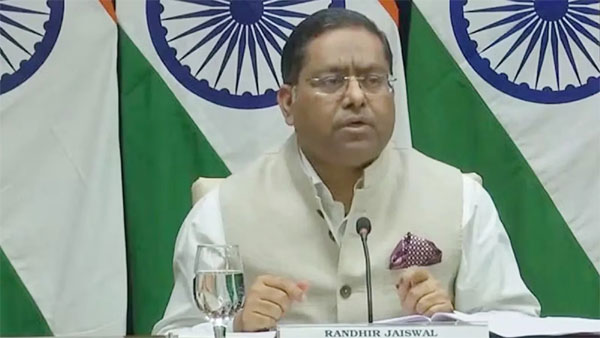Daijiworld Media Network - New Delhi
New Delhi, Jul 17: India on Thursday firmly rejected NATO Secretary General Mark Rutte’s warning about sanctions on countries doing business with Russia, cautioning against “double standards” in global energy trade.
“We are guided by what is available in the market and global circumstances,” said MEA spokesperson Randhir Jaiswal during a media briefing. “We caution against any double standards on this matter. Meeting our people’s energy needs is a top priority.”
The statement comes after Rutte, while speaking in Washington, suggested that India, China, and Brazil could face secondary sanctions if they continue importing Russian oil and gas. “If Moscow doesn’t take peace negotiations seriously, I will impose 100 per cent secondary sanctions,” Rutte warned.

Responding to the rhetoric, Petroleum Minister Hardeep Singh Puri assured that India is well-prepared for any potential fallout. Speaking at the Urja Varta 2025 event, he said, “India today sources oil from 40 countries, up from 27 in 2007. The global market is well-supplied. We are not unduly worried.”
He emphasized that India’s diversification strategy ensures energy security even amid geopolitical pressure. Citing examples, he noted, “Iran and Venezuela are under sanctions now, but they may not be forever. Other countries like Brazil and Canada are scaling up production.”
On former US President Donald Trump’s threats to impose severe trade restrictions on Russia—and secondary sanctions on nations buying Russian oil—Puri remarked, “Some statements are meant to push for negotiations.”
He also defended India’s purchases from Moscow, stating they helped stabilize global oil prices during the Russia-Ukraine conflict. “If not for India’s trade with Russia, oil prices could have shot up to $130 per barrel,” he said.
India’s oil imports from Russia surged from 0.2% pre-2022 to nearly 40% today. However, Puri reiterated that India respects sanctions regimes and does not purchase oil from countries that are under formal sanctions.
“Russian crude has always been under a price cap, not sanctions,” he clarified, warning that eliminating Russia’s 9 million barrels/day from global supply would create “chaos” in the energy market.
India continues to advocate for energy pragmatism over pressure politics, reaffirming that national interest will guide its trade decisions.